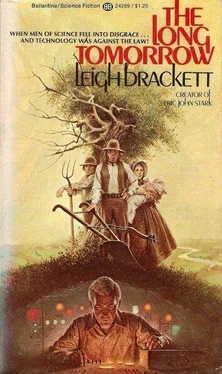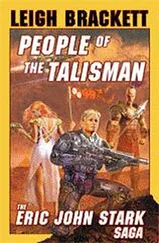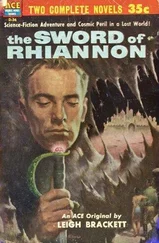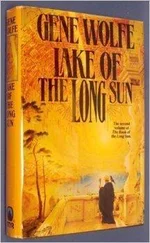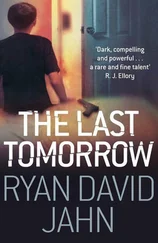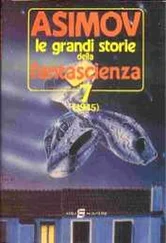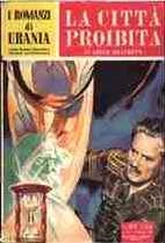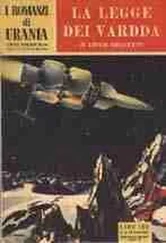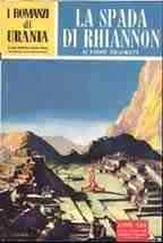There was a sound in the woods.
It was not a right sound. It was not made by any animal or bird or wind or tree branch. It was a crackling and hissing and squealing all mixed together, and out of the middle of it came a sudden roar. It was not loud, it sounded small and distant, and yet at the same time it seemed to come from not too far away. Suddenly it was gone, as though cut off sharp with a knife.
Len stood still and listened.
It came again, but very faintly now, very stealthily, blending with the rustle of the breeze in the high branches. Len sat down and took off his shoes. Then he padded barefoot over the moss and grass to the end of the glade, and then as quietly as he could along the bed of a little stream until the brush thinned out again in a grove of butternuts. He passed through these, ducked into a clump of thorn apples, and went on his hands and knees until he could look out the other side. The sound had not grown any louder, but it was closer. Much closer.
Beyond the thorn apples was a bank of grass, where the violets grew thick in the springtime. It was a wedge-shaped bank, made where the run that gave the village its name slid into the slow brown Pymatuning. It had a big tree leaning over at its tip, with half its roots exposed by the cutting out of the earth in time of flood. It was as private a place as you could find on a Sabbath afternoon in October, in the very heart and center of the woods and at the farthest point away from the farms on either side of the river.
Esau was there. He was sitting hunched over a fallen log, and the noise came from something he held between his hands.
Len came out of the thorn apples. Esau leaped up in a guilty panic. He tried to run away, and hide the object behind his back, and ward off an expected blow, all at the same time, and when he saw that it was only Len he fell back down on the log as though his knees had given under him.
“What did you want to do that for?” he said between his teeth. “I thought it was Dad.”
His hands were shaking. They were still trying to cover up and conceal what they held. Len stopped where he was, startled at Esau’s fright.
“What you got there?” he asked.
“Nothing. Just an old box.”
It was a poor lie. Len ignored it. He went closer to Esau and looked. The thing was box-shaped. It was small, only a few inches across, and flat. It was made of wood, but there was a different look about it from any wooden object Len had ever seen before.
He could not tell quite what the difference was, but it was there. It had curious openings in it, and several knobs sticking out from it, and in one place was a spool on thread fitted into a recess, only this thread was metal. It hummed and whispered softly to itself.
Awed and more than a little scared, Len asked, “What is it?”
“You know the thing Gran talks about sometimes? Where the voices come out of the air?”
“Teevee? But that was big, and it had pictures.”
“No,” said Esau. “I mean the other thing that just had voices.”
Len drew in a long unsteady breath and let it go again in a quivering “Oh-h!” He reached out a finger and touched the humming box, very lightly, just to be sure it was really there. He said, “A radio?”
Esau rested it on his knees and held it firm with one hand. The other shot out and caught Len by the front of his shirt. His face had such a fierceness in it that Len did not try to break away or fight back. Anyway, he was afraid to struggle, lest the radio get broken.
“If you tell anybody,” said Esau, “I’ll kill you. I swear I’ll kill you.”
He looked as though he meant it, and Len did not blame him. He said, “I won’t, Esau. Honest, swear-on-the-Book.” His eyes were drawn back to the wonderful, terrifying, magical thing in Esau’s lap. “Where’d you get it? Does it work? Can you really hear voices from it?” He hunkered down until his chin was almost resting on Esau’s thigh.
Esau’s hand withdrew from Len’s shirt and went back to stroke the smooth wooden surface of the box. At this close range Len could see that it had worn places on it around the knobs, made by the rubbing of fingers, and that one corner was chipped. These intimate things made it suddenly real. Someone had owned it and used it for a long time.
“I stole it,” Esau said. “It belonged to Soames, the trader.”
The familiar nerve tightened and twanged in Len’s middle. He grew back a little and looked up at Esau and then all around, as though he expected stones to come flying at them out of the thorn-apple clump.
“How did youget it?” he asked, unconsciously dropping his voice.
“You remember when Mr. Hostetter put us in the wagon, he went to get something?”
“Yes, he got a box out of Soames’s wagon—oh!”
“It was in the box. There was some other stuff, too, books I think, and little things, but it was dark and I didn’t dare make any noise. I could feelthat this was something different, like the old things Gran talks about. I hid it in my shirt.”
Len shook his head, more in amazement than reproach. “And all the time we thought you were fainted. What made you do it, Esau? I mean, how did you know there was anything in the box?”
“Well, Soames was from Bartorstown, wasn’t he?”
“That’s what they said at the preaching. But—”
Len broke off short as a corollary truth dawned on him, shining with a great light. He looked at the radio. “He was from Bartorstown. And there is a Bartorstown. It’s real.”
“When I saw Hostetter coming back with that box, I just had to look inside it. Coins or anything like that I wouldn’t touch, but this—” Esau caressed the radio, turning it gently in his hands. “Look at those knobs, and the way this part here is done. You couldn’t do that by hand in any village smithy, Len. It must have been machined. The way it’s all put together, and inside—” He squinted in through the grilled openings, trying to catch the light so it would reflect on what was beyond them. “Inside there’s the strangest things.” He put it down again. “I didn’t know what it was at first. I only felt what it was like. I had to have it.”
Len got up slowly. He walked over to the edge of the bank and looked down at the clear brown water, low and slack and half covered over with red and gold leaves. Esau said nervously, “What’s the matter? If you think you’re going to tell, I’ll say you stole it with me. I’ll say—”
“I ain’t going to tell,” said Len angrily. “You’ve had the thing all this time and never told me, and I can keep a secret as good as you.”
Esau said, “I was afraid to. You’re young, Lennie, and used to minding your pa.” He added with some truth, “Anyway, we’ve hardly seen each other since the preaching.”
“It don’t matter,” Len said. It did matter, of course, and he felt hurt and indignant that Esau had not trusted him, but he was not going to let Esau know that. “I was just thinking.”
“What?”
“Well, Mr. Hostetter knew Soames. He went to the preaching to try and help him, and then he took the box out of Soames’s wagon. Maybe—”
“Yes,” said Esau. “I thought of that. Maybe Mr. Hostetter is from Bartorstown, too, and not from Pennsylvania at all.”
Great vistas of terrifying and wonderful possibility were opened up in Len’s mind. He stood there on the bank of the Pymatuning, while the gold and scarlet leaves came down and the crows laughed their harsh derisive laughter, and the horizons widened and shone around him until he was dizzy with them. Then he remembered why he was here, or rather why it was that Pa had sent him into the fields and woods to meditate, and how he had made peace with God and the world just such a little time before, and how good it had felt. And now it was all gone again.
Читать дальше
